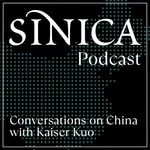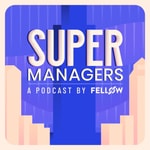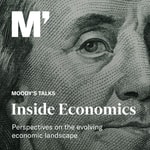Sinica Podcast – Details, episodes & analysis
Podcast details
Technical and general information from the podcast's RSS feed.

Sinica Podcast
Kaiser Kuo
Frequency: 1 episode/11d. Total Eps: 508

A weekly discussion of current affairs in China with journalists, writers, academics, policymakers, business people and anyone with something compelling to say about the country that's reshaping the world. Hosted by Kaiser Kuo.
Recent rankings
Latest chart positions across Apple Podcasts and Spotify rankings.
Apple Podcasts
🇬🇧 Great Britain - politics
29/07/2025#75🇫🇷 France - politics
26/07/2025#92🇨🇦 Canada - politics
25/07/2025#90🇫🇷 France - politics
25/07/2025#66🇨🇦 Canada - politics
24/07/2025#75🇬🇧 Great Britain - politics
24/07/2025#78🇫🇷 France - politics
24/07/2025#82🇨🇦 Canada - politics
23/07/2025#92🇬🇧 Great Britain - politics
23/07/2025#68🇨🇦 Canada - politics
22/07/2025#55
Spotify
No recent rankings available
Shared links between episodes and podcasts
Links found in episode descriptions and other podcasts that share them.
See all- https://soundcloud.com/lakeyinspired
164 shares
- https://bookshop.org/
134 shares
- https://turo.com/
78 shares
RSS feed quality and score
Technical evaluation of the podcast's RSS feed quality and structure.
See allScore global : 48%
Publication history
Monthly episode publishing history over the past years.
Does Beijing Really Want Trump?
mercredi 28 août 2024 • Duration 16:25
Hey folks! I took some time off to drive the kids to college and then flew to California to celebrate my brother John’s birthday. The upshot is there’s no interview this week, so in place of that, here’s my essay from this week. Hope you enjoy it. If all goes as planned, I’m back next week with regular interview for Sinica!
You can find the text of the essay at sinicapodcast.com.
See Privacy Policy at https://art19.com/privacy and California Privacy Notice at https://art19.com/privacy#do-not-sell-my-info.
The Swifts of Beijing, with Terry Townshend of Birding Beijing
jeudi 15 août 2024 • Duration 58:00
I was looking for a good episode to pull from the archive to run this week as I'll be traveling and I asked my good friend Deb Seligsohn for a recommendation. She went immediately to this one, and by God if it's not an oldie-but-goodie. This is from December 2015 and features Jeremy Goldkorn — I miss him dearly! — and Terry Townshend, an absolute institution in China's birding community.
I'll likely have to run another re-run next week, and I welcome your suggestions!
All best,
Kaiser
Recommendations and Links:
Jonathan Franzen, Purity: A Novel
Cement and Pig Consumption Reveal China's Huge Changes
See Privacy Policy at https://art19.com/privacy and California Privacy Notice at https://art19.com/privacy#do-not-sell-my-info.
An Ecological History of Modern China, with Stevan Harrell — Part 2
jeudi 27 juin 2024 • Duration 01:15:14
This week on Sinica, Part 2 of the interview with anthropologist Stevan Harrell, professor emeritus at the University of Washington, about his magnum opus, An Ecological History of China. Be sure to listen to Part 1 first, as many important framing concepts are discussed in that episode!
1:44 “– The Four Horsemen of Ecopocalypse” and ecological disasters during the Mao period, and the story of the double-wheel, double-bladed plow
11:00 – The effect of the introduction of water systems and fertilizers on agricultural production
21:03 – “The replumbing of China:” The South-North Water Transfer Project and the National Water Network
27:32 – Areas of progress: Air pollution and the energy mix
32:48 – Areas lacking appreciable improvement: Soil contamination, water pollution, and flood vulnerability
36:04 – Ecological civilization and breaking the binary between development and environmental protection
47:00 – Steve’s cognitive style: A fox of the two cultures
53:23 – nSteve’s views on authoritarian environmentalism
58:46 – The Environmental Kuznets curve
1:05:54 – A preview of Steve’s current book project about the Yangjuan Primary School in Liangshan
Recommendations:
Steve: Salman Rushdie’s Haroun and the Sea of Stories; Hampton Sides’ The Wide Wide Sea: Imperial Ambition, First Contact and the Fateful Final Voyage of Captain James Cook; and the 2023 film The Taste of Things, starring Juliette Binoche
Kaiser: The Cold War: A World History by Odd Arne Westad
See Privacy Policy at https://art19.com/privacy and California Privacy Notice at https://art19.com/privacy#do-not-sell-my-info.
Prototype Nation: Silvia Lindtner on what drives Chinese tech innovation, and how tech drives Chinese statecraft
jeudi 21 juillet 2022 • Duration 01:07:17
This week on the Sinica Podcast, Kaiser chats with Silvia Lindtner of the University of Michigan about her book Prototype Nation. In a wide-ranging conversation, they discuss how China's maker movement inspired the Party leadership to encourage tech entrepreneurship, how Shenzhen rose to such prominence in technology production, the fetishization of the shanzhai movement, and much more.
5:29 How narratives on Chinese tech innovation have shifted
14:10 What made China's technological innovation possible?
20:37 State support for the maker movement and mass innovation
29:52 The technocratic and entrepreneurial mindset of the CCP
38:45 Techno-optimism in China versus the West
45:57 Shenzhen's "hacker paradise" as a transnational project
50:02 Orientalism in the West's fascination with shanzhai, or copycat, culture
A complete transcript of this podcast is available at SupChina.com.
Recommendations
Silvia: In This Moment, We Are Happy by Chen Qiufan and Surrogate Humanity: Race, Robots, and the Politics of Technological Futures by Kalindi Vora and Neda Atanasoski
Kaiser: Sarmat Archery based in Kiev, Ukraine
See Privacy Policy at https://art19.com/privacy and California Privacy Notice at https://art19.com/privacy#do-not-sell-my-info.
Semiconductors and the unspoken U.S. tech policy on China, with Paul Triolo
vendredi 15 juillet 2022 • Duration 01:07:59
This week on Sinica, Kaiser chats with Paul Triolo, Senior VP for China and Technology Policy Lead at Dentons Global Advisors ASG, formerly and probably better known still as Albright Stonebridge Group. Paul provides an in-depth overview of today’s semiconductor landscape, from export control issues, to the unstable equilibrium between U.S., China, and Taiwan’s industries. He walks us through the strategic importance of semiconductors in U.S. national security considerations — and how unintended consequences of our current policies toward China might actually end up undermining U.S. national security.
04:45 – An overview of semiconductor geopolitics and supply chains
20:33 – Why the U.S. is cutting China off from advanced semiconductor technologies
27:02 – The shift in technology export controls from Trump to Biden
32:08 – The CHIPS Act and subsidies for the semiconductor industry
37:43 – Deterrence and Taiwan’s semiconductor industry as a “silicon shield”
46:16 – Lessons learned from the chip shortage
52:30 – Why is the U.S lighting a fire to Chinese self-sufficiency efforts?
57:57 – The implications of Pelosi’s planned visit to Taiwan
A transcript of this podcast is available at SupChina.com.
Recommendations:
Paul: Rob Dunn, A Natural History of the Future; and Ryan Hass, Stronger: Adapting America's China Strategy in an Age of Competitive Interdependence
Kaiser: The Boys on Amazon Prime
See Privacy Policy at https://art19.com/privacy and California Privacy Notice at https://art19.com/privacy#do-not-sell-my-info.
Historian Andrew Liu on COVID origins: Orientalism and the "Asiatic racial form"
jeudi 7 juillet 2022 • Duration 57:26
This week on Sinica, Kaiser chats with Villanova University historian Andrew Liu. Andy published an excellent essay in n+1 magazine in April that captured how the eclipse of the "wet-market" theory of COVID origins and its replacement by the "lab-leak" theory illustrates how an old racial form — "Orientalism," which sees countries of Asia as backward, dirty, and barbarous — gave way to what's been termed an "Asiatic" racial form, which reflects anxiety over Asians as hyperproductive, robotic, and technologically advanced.
3:05 – Andy's n+1 essay on the lab leak theory and the two racial forms
6:26 – A primer on Edward Said's Orientalism and why it's a poor fit for Asia today
10:41 – The "Asiatic racial form" and the notionally "positive" Asian stereotypes
13:58 – How Orientalism and the Asiatic racial form interact today and historically
23:50 – Conspiracies on China, and what's wrong with the Asiatic form
27:51 – Japan's rise as a parallel
30:57 – How to talk about Chinese attitudes toward tech without invoking Asiatic stereotypes
37:27 – Race, culture, and global capitalism
A full transcript of this podcast is available on SupChina.com.
Recommendations:
Andy: Stay True: a memoir by the New Yorker writer Hua Hsu and donating to abortion providers in states affected by the end of Roe v. Wade:, like Abortion Care for Tennessee, abortioncaretn.org
Kaiser: The Danish political drama Borgen on Netflix
See Privacy Policy at https://art19.com/privacy and California Privacy Notice at https://art19.com/privacy#do-not-sell-my-info.
Yale's Jing Tsu on the characters who modernized Chinese characters
jeudi 30 juin 2022 • Duration 59:44
This week on Sinica, Kaiser chats with Jing Tsu, John M. Schiff Professor of East Asian Languages and Literatures & Comparative Literature at Yale University, about her wonderful new book Kingdom of Characters: The Language Revolution that Made China Modern. Jing talks about her role as culture commentator for NBC during the 2022 Winter Olympics in Beijing, about how the written Chinese language has helped shape China, and about the fascinating individuals who worked to bring a writing system so deeply rooted in history and tradition into the modern world.
Link to Jing and Kaiser interviewed for the Radio Opensource Podcast here.
4:59 – Jing's role as cultural commentator for NBC during the Winter Games
10:43 – The impetus for writing Kingdom of Characters
16:09 – Why the critics of the Chinese writing system called for its destruction
18:57 – What the defenders of the Chinese writing system love so much about it
25:51 – The challenge of writing about the technology of Chinese writing
29:05 – The Chinese writing system as a metaphor for China
32:46 – The next technological frontiers for Chinese
35:48 – Language and how it shapes thinking in China
A complete transcript of this podcast is available at SupChina.com.
Recommendations:
Jing: Everything Everywhere All at Once
Kaiser: The Pattern of the Chinese Past by Mark Elvin; and Closure/Continuation, a new album by the British progressive rock band Porcupine Tree.
See Privacy Policy at https://art19.com/privacy and California Privacy Notice at https://art19.com/privacy#do-not-sell-my-info.
Taiwan: Saber rattling, salami slicing, and strategic ambiguity, with Shelley Rigger and Simona Grano
jeudi 16 juin 2022 • Duration 01:12:13
This week on the Sinica Podcast, Shelley Rigger of Davidson College returns to the show to talk Taiwan. She's joined by Simona Grano, a sinologist and Taiwan specialist at the University of Zürich. They talk about President Joe Biden's recent "gaffes" that call into question the longstanding, unofficial U.S. policy of "strategic ambiguity," talk about how Taiwan has been impacted by the Ukraine War, and much more.
4:59: – What did Joe Biden's latest "gaffe" on Taiwan actually signify?
10:06 – Did "strategic ambiguity" serve its intended purpose?
16:23 – The mood in Taiwan
20:51 – The impact of the Ukraine War on thinking in Beijing and in Taipei
34:12 – European countries navigating relationships with Taiwan
43:54 – The "One China Principle" versus the "One China Policy"
47:20 – Are bilateral trade agreements enough for Taiwan?
50:27 – Ethnicity, nationality, and the Taiwan issue
59:00 – Making sense of the PRC claim to Taiwan
A complete transcript of this podcast is available at SupChina.com.
Recommendations:
Simona: Orphan of Asia, a novel by Wu Zhuoliu; and the show Orange is the New Black
Shelley: Occupied, a Norwegian thriller series on Netflix
Kaiser: Meizhong.report, a Chinese-language resource from the Carter Center's U.S.-China Perception Monitor, covering official, media, and social media commentary on U.S.-China relations
See Privacy Policy at https://art19.com/privacy and California Privacy Notice at https://art19.com/privacy#do-not-sell-my-info.
A Comprehensive Mirror: James Carter's "This Week in China's History" column marks two years
jeudi 9 juin 2022 • Duration 57:03
This week on Sinica, Kaiser chats with James (Jay) Carter, Dean of the College of Arts & Sciences at St. Joseph's University in Philadelphia. Jay, who joined us on the show in December 2020 to talk about his book Champion's Day, is the author of one of the most widely-read columns that SupChina runs: This Week in China's History. In honor of two full years of contributions, with over 100 columns, Kaiser asked Jay to talk about his process, his purpose, and the challenges and the rewards of writing this excellent column.
6:34 – The origin story of the column, and its original intention
11:34 – How the hell does Jay do it week in and week out?
23:84 – Jay talks about Jonathan Spence and what it was like to study under him at Yale
31:32 – On the diversity of perspectives in the column
40:53 – How the column keeps Jay connected to academic work and intellectual life
43:35 – Threading the needle in deploying historical analogy, and right-sizing historical "rhymes" and patterns
A complete transcript of this podcast is available at SupChina.com.
Recommendations:
Jay: The Broadway musical Hadestown; and the New York City Ballet
Kaiser: The inaugural Sinologia Conference on June 10
See Privacy Policy at https://art19.com/privacy and California Privacy Notice at https://art19.com/privacy#do-not-sell-my-info.
Mental health under lockdown: A clinical psychologist in Shanghai
jeudi 2 juin 2022 • Duration 58:27
This week on Sinica, Kaiser welcomes back Dr. George Hu, a clinical psychologist based in Shanghai, who has a lot to say about the state of mental health in Chinese cities under lockdown. Unsurprisingly, mental health disorders like anxiety and depression have been exacerbated under conditions of isolation and food insecurity. Surprisingly, there's a silver lining or two to the whole thing.
6:52 – Getting a sense for the scale of mental health problems related to the lockdown in Shanghai
16:23 – Have the lockdowns increased awareness of and empathy for people suffering from mental health disorders in Shanghai and in China?
20:07 – The lockdowns and impact on children and on the elderly
34:05 – The impact on essential workers
42:21 – What other Chinese cities are learning from Shanghai's COVID-19 experience
45:22 – The quarantine centers and mental health services
A full transcript of this podcast is available at SupChina.com.
Recommendations:
George: How to Raise an Adult: Break Free of the Overparenting Trap and Prepare Your Kid For Success by Julie Lythcott-Haims
Kaiser: Nicholas Confessore's series in the New York Times on Tucker Carlson, "American Nationalist"
See Privacy Policy at https://art19.com/privacy and California Privacy Notice at https://art19.com/privacy#do-not-sell-my-info.









